Business & Management
Mak and ACCA Career Workshop: Students tipped on success, professionalism and the future of accountancy
Published
11 months agoon
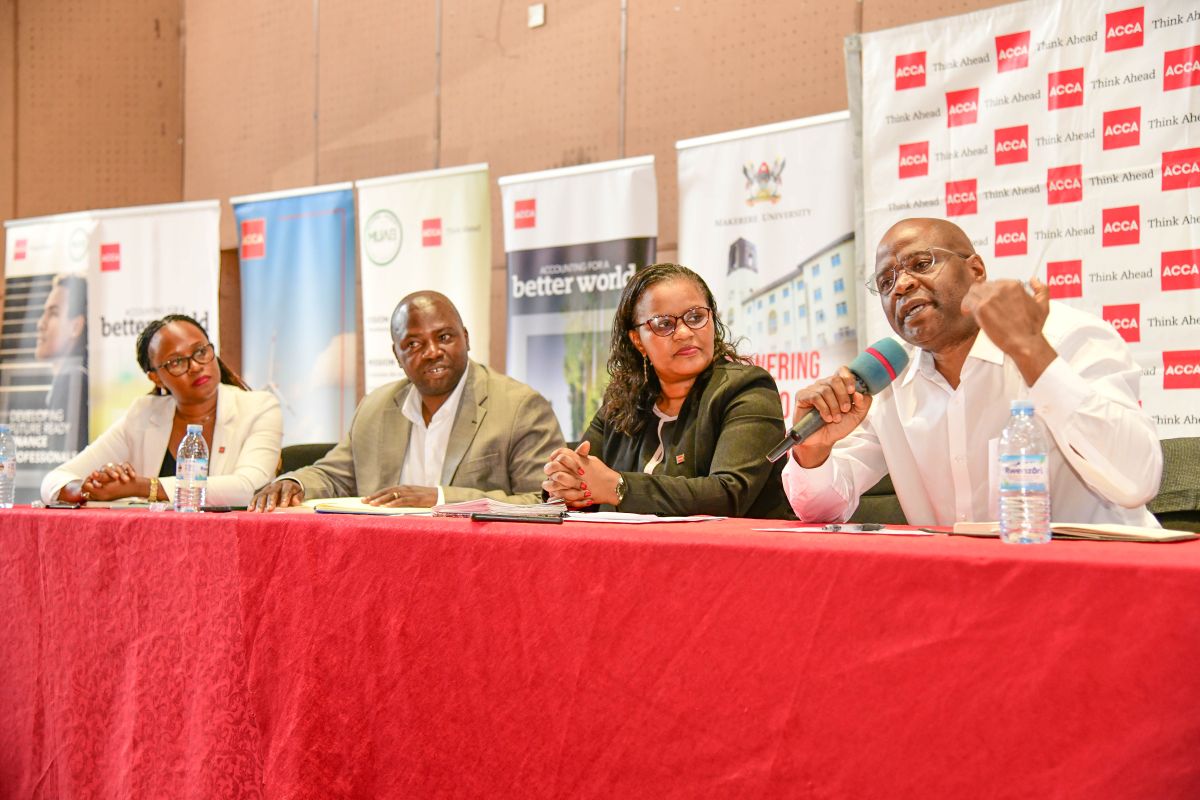
On Tuesday 1st April 2025, over600 students from the College of Business and Management Sciences convened at Makerere University Yusuf Lule Central Teaching Facility Auditorium to participate in the Career workshop that provided an invaluable platform for students to engage with industry leaders, gain insights into career prospects and professional development within the accounting and finance sectors.
Organized by the Association of Chartered Certified Accountants (ACCA) in Uganda in partnership with Makerere University Department of Accounting and Finance, School of Business under the College of Business and Management Sciences, the Career workshop also presented a platform to celebrate the academic achievements of the ten (10) Bachelor of Commerce students who graduated with First Class degrees-Honours Division during the Makerere University 75th Graduation ceremony held in January 2025.
Prior to the workshop, the Dean, School of Business, Dr. Godfrey Akileng in an interview with the College’s Communication Office, disclosed that celebrating the academic achievements of the students who obtained First Class degrees would inspire the current students to excel. In addition, Dr. Akileng noted that the presence of graduates who excelled at the Career workshop would lead to networking and peer mentorship possibilities with the current students.
During the Career workshop, speakers from Makerere University and ACCA Uganda re-affirmed their commitment to equipping graduates with the knowledge, skills and tools needed to excel in a rapidly evolving job market.
To understand the future of accountancy, students listened to presentations featuring the relevance of the accounting and finance in today’s job market by Dr. Eric Nzibonera; Insights on the collaboration with ACCA by Ms Charlotte Kukunda; Discussion of the global career opportunities in accounting and how ACCA supports professional development by Ms Jackie Mbabazi; and a keynote speech titled, An exploration of the skills and trends shaping the future of the accounting and finance industries in the 21st Century by Mr. Robert Busuulwa.
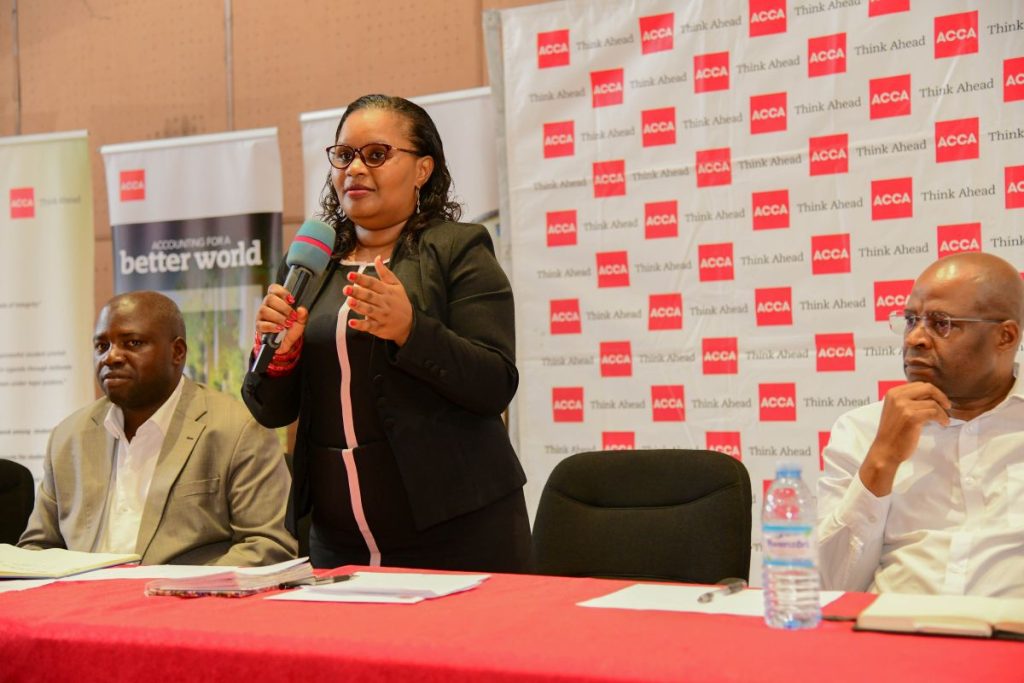
In his address, the Principal of the College of Business and Management Sciences, Prof. Edward Bbaale acknowledged the School of Business for proritising career talks and mentorship sessions for students.
“To the students, the Career workshop presents you with a chance to envision your career, and what you want to be, or what you want to study,” he said.
The Principal underscored the critical importance of bridging the gap between the academia and industry. He highlighted the instrumental role of partnerships, particularly the collaboration between Makerere University and ACCA in equipping students with globally competitive skills and certifications.
Prof. Bbaale emphasized that in the 21st century, this interface isn’t merely an option but “a necessity,” echoing the sentiments of both the keynote speaker, Mr. Robert Busuulwa, and ACCA partners.
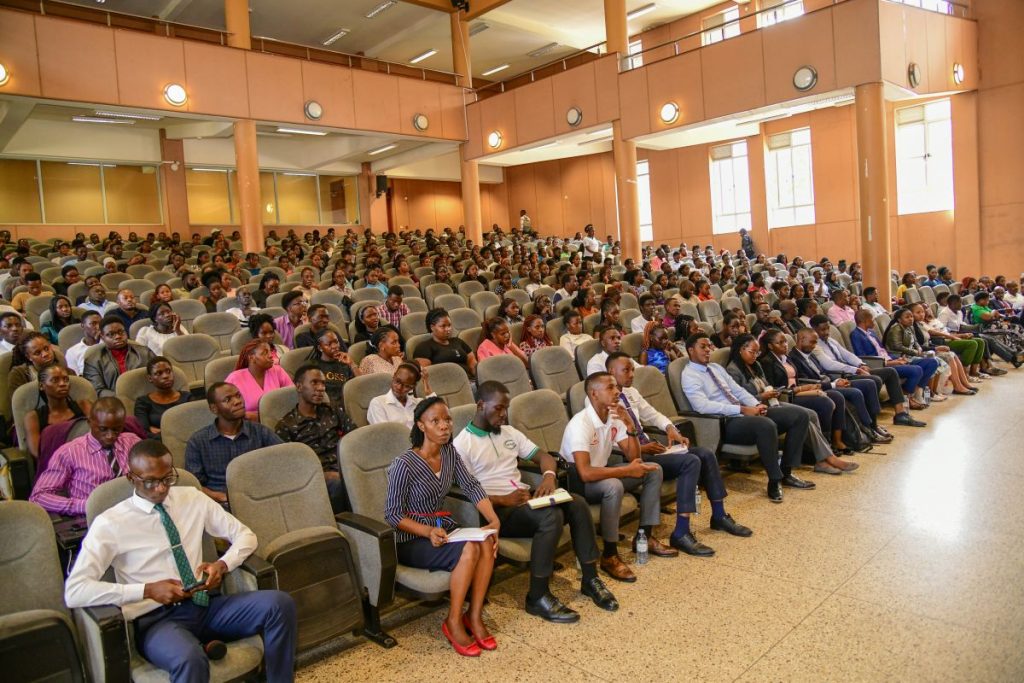
He advised students to visualise themselves as “global candidates” and pursue their careers with diligence and passion, taking the lessons from the workshop seriously and seeking continuous professional development. Prof. Bbaale stressed the significance of “building oneself, moulding oneself” through education, training, and experience, advocating for a focus on human capital development over immediate financial gain.
He emphasized the importance of “volunteering to work” in orderto gain experience and build a professional network. He reaffirmed the College’s commitment to strengthening collaborations to ensure graduates are academically competent and well-prepared to navigate the evolving job market.
Dr. Eric Nzibonera, the Head, Department of Accounting and Finance at the College of Business and Management Sciences highlighted the significance of career guidance events for University students. He explained that career workshops provide a valuable opportunity for students to “make a choice about a particular career,” a privilege he noted was not always available to students in the past. Dr. Nzibonera believed the workshop was a chance for students to learn from experienced professionals, guiding them towards informed decisions about their future careers.
Convinced that the workshop presented a golden opportunity to students to learn from experienced professionals, Dr. Nzibonera called upon students to leverage such moments to listen to the respective presenters, prepare to ask questions on professionalism, accreditation and career paths.
Focusing on the relevance of accounting and finance in today’s job market, Dr. Nzibonera reiterated that the accounting profession is very central in the day to day lives of individuals. “Inall realms of business, in whatever you do, you need some scheme or some kind of accounting that works,” he remarked. He noted that this underlines the universal applicability of financial literacy, whether pursuing careers directly related to the field.
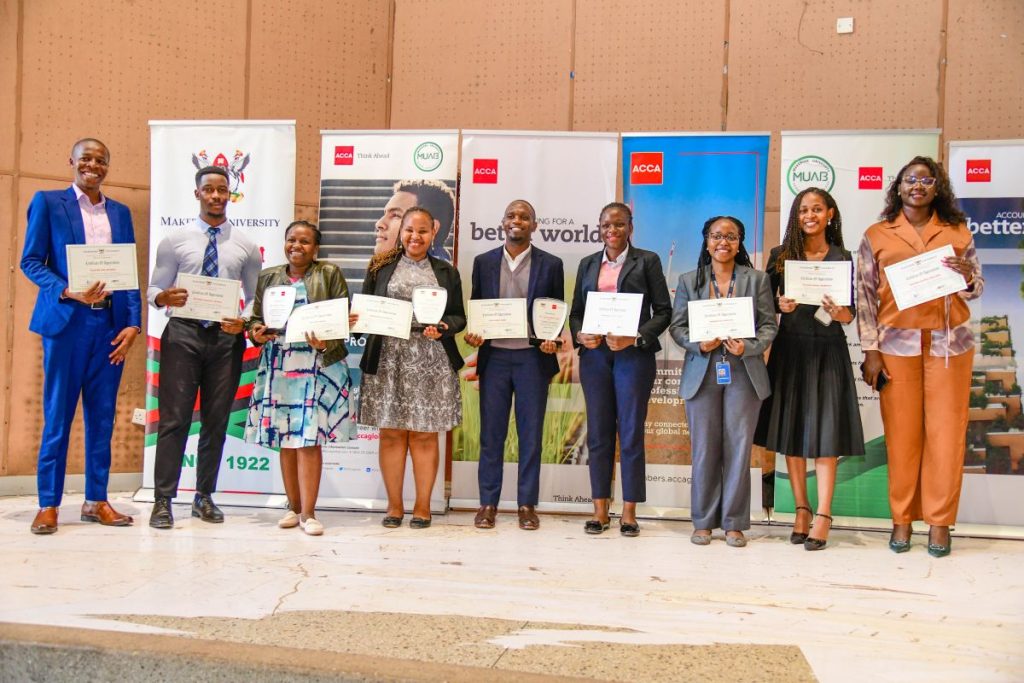
The Country Manager, ACCA Uganda, Ms Charlotte Kukunda informed the students who turned up in big numbers, that the Career workshop was anchored in the programmes and activities that Makerere University and ACCA Uganda agreed to undertake when both entities signed a Memorandum of Understanding (MoU) in July 2022.
Ms Kukunda affirmed that ACCA Uganda values its strategic partnership with Makerere University, which has been mutually beneficial and fruitful. To expound this argument, Ms Kukunda highlighted the achievements which included: 660 students enrolled for ACCA programme, curriculum reviews of Makerere University accounting programmes, re-accreditation of the Bachelor of Commerce Accounting in June 2022, annual recognition of best accounting students since 2022, tutor capacity building workshops conducted at the College, lecturers granted access to the Education Hub, and hosting of three student career workshops annually.
She outlined the areas of collaboration with Makerere University as follows: accreditation of accounting programmes, co-development of teaching programmes that align and support the University edge resources and professional insights, employability through supporting students’ career and skills development, access to ACCA member networks to support Makerere University guest lectures/panels/conference speakers, and faculty skills development support in their teaching, learning and assessment.
The Country Manager said the Career workshop is planned, deliberate and intentional because ACCA classifies Makerere University students as strategic business leaders who are being nurtured, trained and prepared to drive the economy. She clarified that the ACCA programme is not limited to only students studying accounting. According to Ms Kukunda, the ACCA programme embraces a broader range of disciplines and positions students for global competitiveness.
Ms. Kukunda encouraged students to explore the information resources on the ACCA website to tap into the opportunities that will enhance their financial acumen. She urged students to perceive themselves as global citizens. “When you perceive yourself as that, you are the right candidate for pursuing these globally accredited qualifications,” she said. She reinforced the value of connections and valuable networks with industry professionals, assuring students that their future is filled with potential and opportunities.
Feeding into Ms Kukunda’s presentation, Ms Jackie Mbabazi, the Business Relationship Manager at ACCA Uganda highlighted the significance of the ACCA qualification in shaping future leaders. She affirmed that ACCA is “a forward-thinking qualification” connected to vital sectors and stakeholders globally.
Ms. Mbabazi emphasized the global reach of the ACCA. “We are present in 180 countries. As you plan your professional journey, consider the ACCA qualification that is going to make you professional. Technology has enabled us to work beyond borders. Having globally recognized qualifications such as ACCA positions you to work globally,” she elaborated.
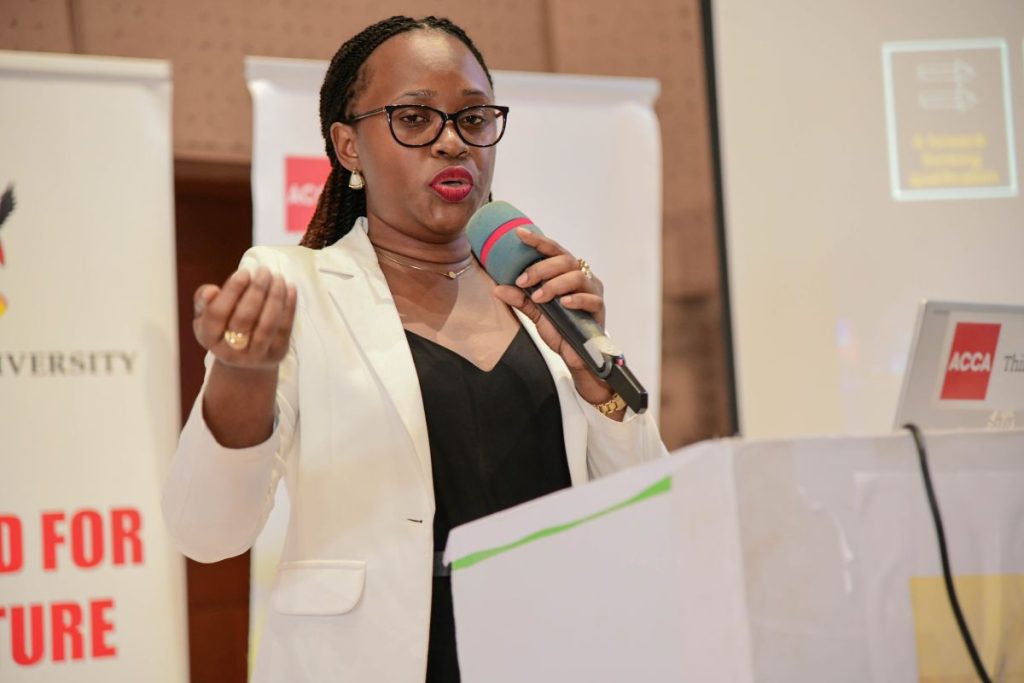
Ms. Mbabazi further pointed out the “forward-thinking qualification” attributes of ACCA. These include: Empowering individuals to be digitally relevant, creating ethical and trusted professionals, global recognition, professionals who add value, access to the most up to date syllabus on the market, and continuous learning for trainees as well as access to the global employability platform.
She also discussed the importance of adapting to technological advancements, stating, “You need to adapt and make sure technology is at the heart of what you are doing.”
Ms. Mbabazi articulated that ethics is at the centre of the ACCA programme. “ACCA programmes uphold ethics in building professionals. I urge you to avoid any form of fraud,” she emphasized.
The captivating presentations from the College of Business and Management Sciences and ACCA Uganda set the pace for the students to listen to a powerful keynote speech. Dr. Martin Bakundana introduced the keynote speaker, Mr. Robert Busuulwa, the founder and Managing Partner of Forvis Mazars in Uganda with over 30 years of tested and proven experience.
Mr. Robert Busuulwa’s keynote speech embodied words of wisdom and lived experiences that require an individual to be responsible for his or her destiny.
He guided the students that being successful is a personal choice and commitment. “If you want to be successful, dedicate time and study success,” he advised.
“When you plan to do something, focus and concentrate. Pursue your ambitions and career aspirations with determination and confidence,” he added.
He castigated the popular phrase where individuals believe that it is the government responsible for their success and development. That statements calling upon the government to “assist” individuals should be discarded. “True liberation is about understanding who you are, your strengths and weakness, and what you can do as an individual to leverage your strength,” he stated.
He emphasized the importance of acquiring relevant skills, urging students to consider what they needed to demonstrate to future employers, particularly in light of evolving trends such as AI, robotics, and big data. “What are the skills that you are expected to demonstrate?” he asked, reflecting on the broadening scope of skills in the field.
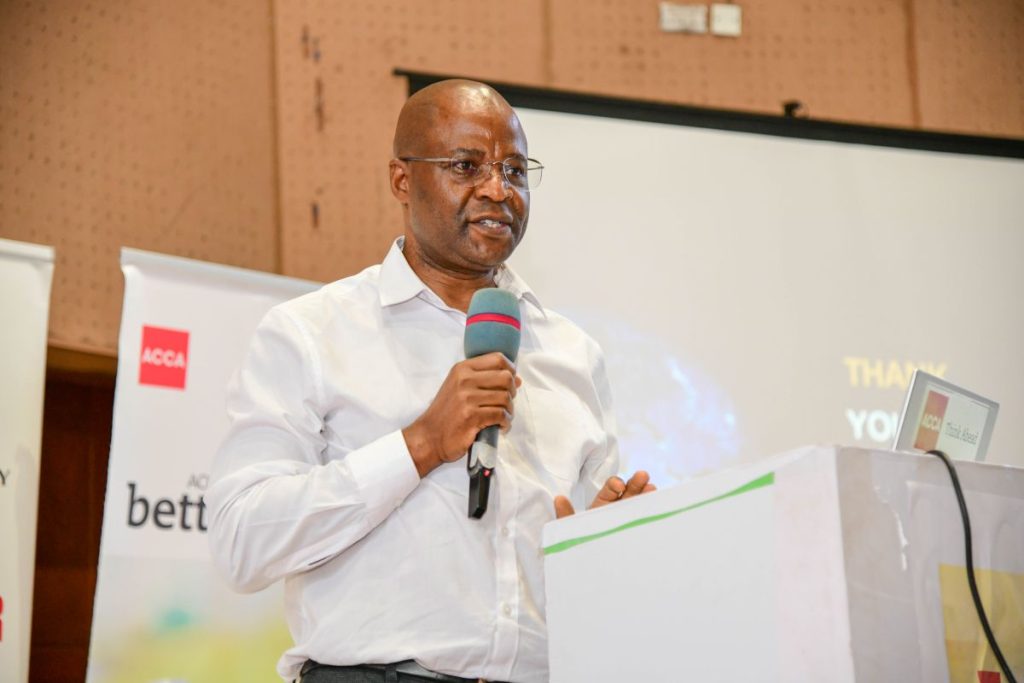
Using lively examples, the keynote speaker informed the audience that he had to create time to be at Makerere University on 1st April 2025 to speak to the students. He reported that he manages a very tight schedule, but if you want and value something, you work towards it, and ensure it is a possibility.
“I am here because I created time and convinced myself that I should join you today. I love mentorship and interacting with people. I love being here. I have to return to society, what it has given me through qualifications, life and experiences. Through this career workshop, I am exactly doing that,” he said.
Mr. Busuulwa shared anecdotes from his academic journey and connecting with young minds poised for the future. He reinforced the notion that the landscape of accounting has changed dramatically, moving from traditional number-crunching to roles involving Environmental, Social, and Governance (ESG) factors, financial crime, and IT consulting.
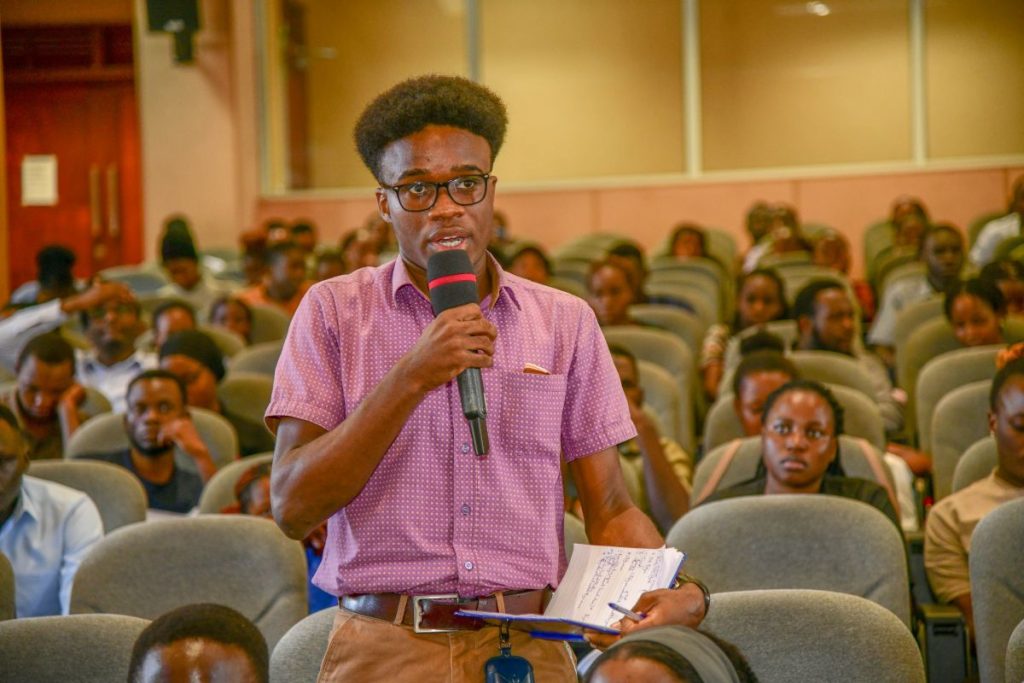
Mr. Busuulwa mentioned that with the trends in the accounting profession, students and practitioners are presented with diverse career paths.
Mr. Busuulwa encouraged students to understand and appreciate their potential. “Every one of you here has the potential. I urge you to believe in your capabilities,” he said. He cautioned students and young people in general against limiting beliefs. Citing the power of thinking and its effects on the choices that individuals make, he stated, “If you think you can’t do it, you will not.”
He inspired students to actively shape their careers, stressing the need for adaptability and continuous learning. He appealed to the students to always empower their minds and souls with positive statements such as “Whatever it is, I am going to be successful,” he remarked.
The Career workshop moderated by Ms Sylvia Namujjuzi, Assistant Lecturer at the College of Business and Management Sciences assisted by Mr. Jonathan Basalirwa, a third year student, ended on a high note with presentation of awards of excellence to the best ten (10) First Class Honours Division graduates, and a networking session involving the respective speakers and students.
The Principal thanked the Dean, School of Business- Dr. Godfrey Akileng, Dr. Eric Nzibonera, Ms Sylvia Namujjuzi, Mr. John Ogema, the Makerere University Accountancy Bureau, and the team from ACCA Uganda for organizing the Career workshop 2025.
The discussions involving Makerere University staff namely Prof. Edward Bbaale, Dr. Eric Nzibonera, ACCA Uganda-Ms Charlotte Kukunda and Ms Jackie Mbabazi, and the Keynote Speaker Mr. Robert Busuulwa emphasized the necessity of bridging the gap between academic training and real-world skills.
You may like
Business & Management
Thirty Public Officers Certified in Integrated Regulatory Cost-Benefit Analysis
Published
2 days agoon
March 3, 2026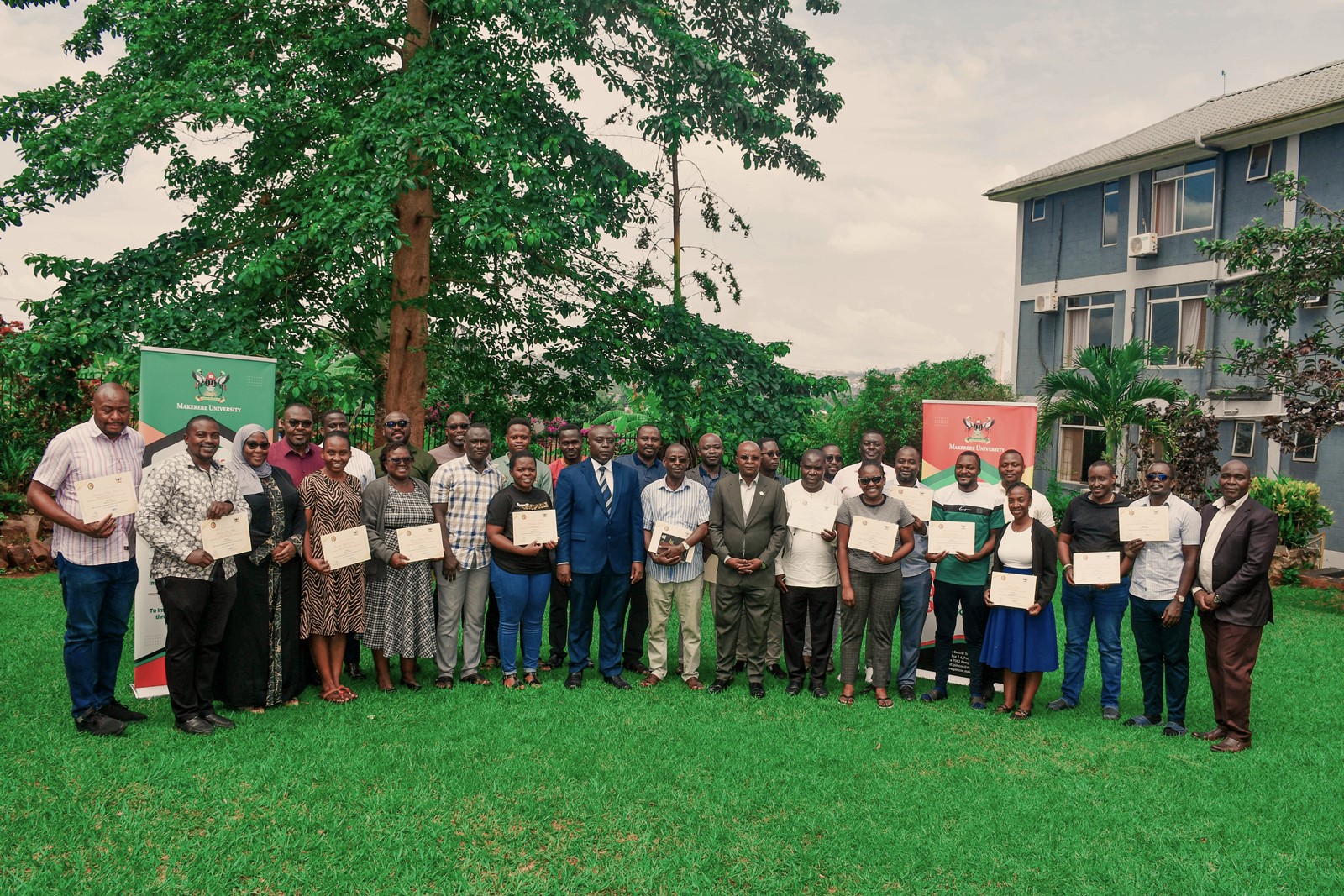
Thirty public officers from various Ministries, Departments and Agencies (MDAs) have successfully completed a two-week intensive training in Integrated Regulatory Cost-Benefit Analysis (IRCBA), culminating in the award of certificates at a closing ceremony held on 27th February 2026 at the Pearl on the Nile Hotel in Jinja.
The training was jointly organized by the Public Investment Management Centre of Excellence at Makerere University and the Ministry of Finance, Planning and Economic Development (MoFPED), in collaboration with the Infrastructure and Social Services Department (ISSD) and the National Planning Authority (NPA). It focused on operationalizing the Revised Guidelines for the Issuance of Certificates of Financial Implication (CFIs), which came into effect on 1st July 2025.
A Strategic Reform for Fiscal Credibility
In closing remarks delivered on by Commissioner Paul Patrick Mwanja behalf of the Permanent Secretary/Secretary to the Treasury, participants were commended for undertaking the training during a demanding budget cycle, when many MDAs are simultaneously preparing the FY 2026/27 Budget, executing the FY 2025/26 Budget, and implementing the National Development Plan IV and the Tenfold Growth Strategy.
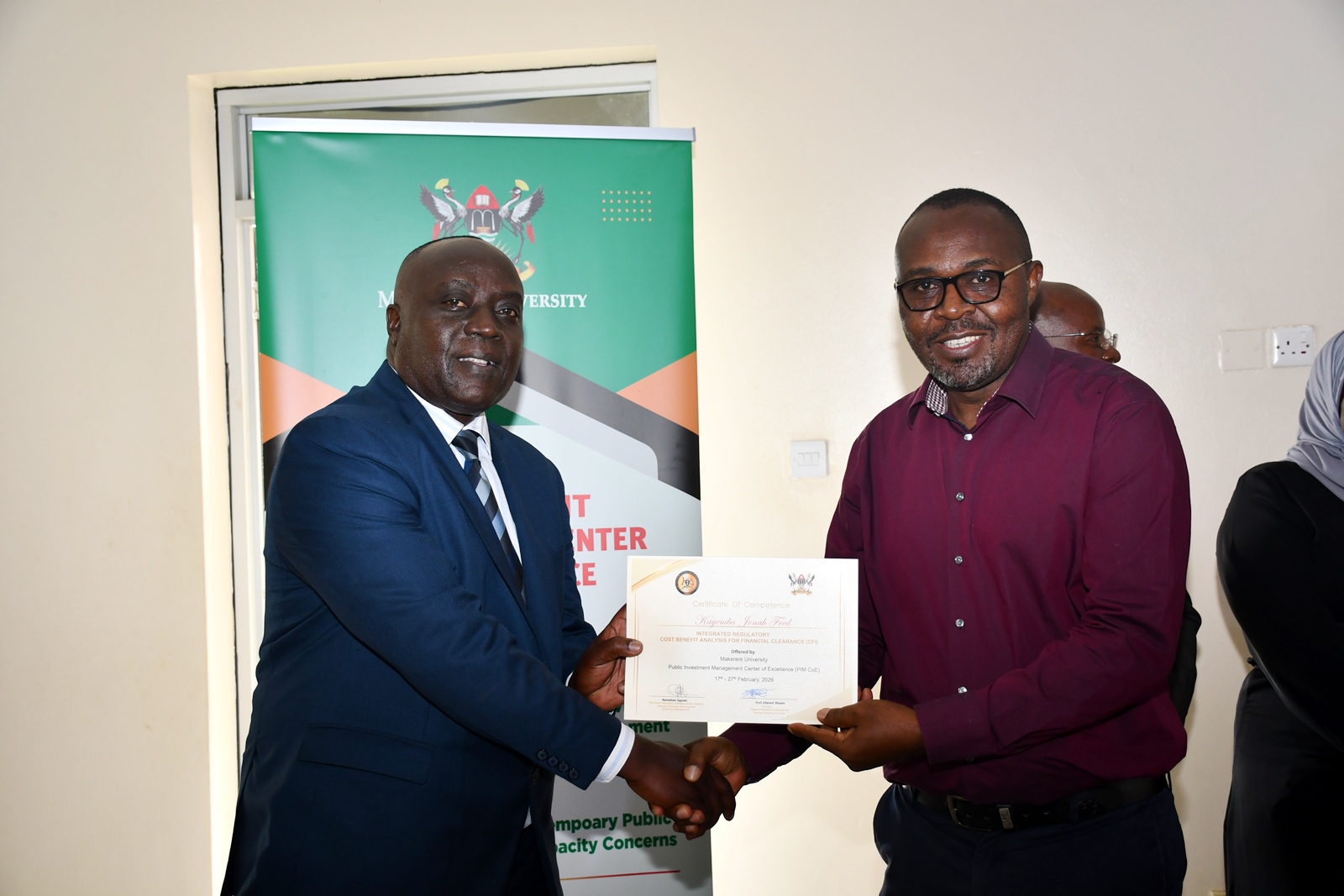
The PS/ST emphasized that the revised Guidelines mark a significant shift toward a more transparent, data-driven, consultative, and analytically rigorous approach to evaluating policy and legislative proposals. Participants were equipped to assess fiscal implications, evaluate economic and socio-economic impacts, analyze distributional effects, and address uncertainty using structured analytical tools.
They were reminded that training alone is not sufficient, the real test lies in consistent application. As members of the third cohort, they were challenged to serve as reform ambassadors, championing evidence-based policymaking and strengthening analytical standards across government.
Bridging Academia and Public Service
Delivering the official closing remarks, the Director of the PIM Centre of Excellence, Prof. Edward Bbaale, commended participants for their active engagement and unwavering commitment throughout the training.
He described the programme as both timely and strategic, designed to equip officers with practical tools to prepare robust Statements of Financial Implication (SFIs) that support credible issuance of CFIs. He noted that strong financial analysis enhances fiscal discipline, policy coherence, and the overall quality of legislation and public policy in Uganda.
Prof. Bbaale underscored the longstanding partnership between Makerere University and the Ministry of Finance, highlighting how it continues to bridge academia and public service by combining analytical rigor with practical policy experience. He emphasized that the collaborative model — bringing together faculty from the College of Business and Management Sciences and practitioners from Government, reflects the core vision of the PIM Centre of Excellence: strengthening national systems through evidence-based policymaking.
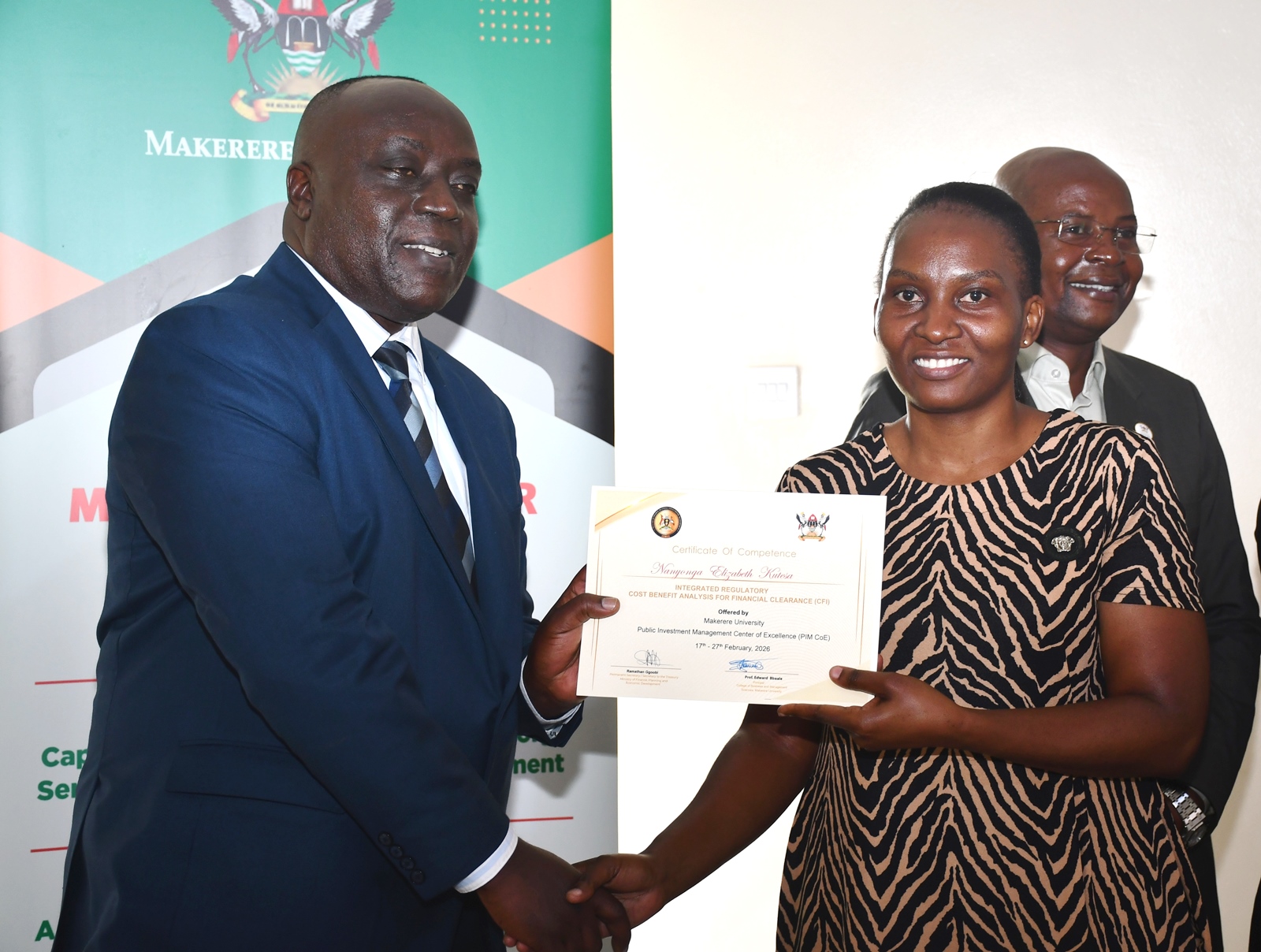
During the two weeks, participants gained hands-on experience in applying cost-benefit analysis across four critical dimensions: budgetary analysis, socio-economic analysis, distributive impacts, and risk assessment. Prof. Bbaale encouraged them to return to their institutions as agents of transformation, improving evaluation frameworks, strengthening regulatory decisions, and ensuring that public interventions deliver value for money and long-term development impact.
He also reaffirmed the Centre’s broader mandate beyond training, noting its recent support to the revision of Development Committee Guidelines, assessment of public investment performance since NDP I, and hosting of the Second Public Investment Management Conference in August 2025.”
Building from “Zero Kilometre”
Earlier, the Manager of the PIM Centre of Excellence highlighted the practical approach adopted during the training. Participants began with blank Excel sheets and built analytical models from scratch, likened to the engineering concept of starting at “zero kilometre,” where construction begins from the very starting point and progresses step by step.
The interactive sessions enabled participants from diverse disciplines, including policy analysts, planners and statisticians, to interrogate assumptions, refine costing approaches, and debate implementation and enforcement frameworks. Their sector-specific insights enriched the learning process and strengthened the analytical models developed.
The Manager noted that excellence is not about knowing everything, but about bringing together the right expertise. Facilitators from MoFPED, NPA, the Office of the President, and Makerere University ensured that theory remained grounded in practical government realities.
Participants Applaud Practical and Engaging Sessions
Speaking on behalf of the cohort, a participant described the training as highly engaging and transformative. The combination of theory and practical application, coupled with patient facilitation, allowed officers from varied professional backgrounds to learn from one another.
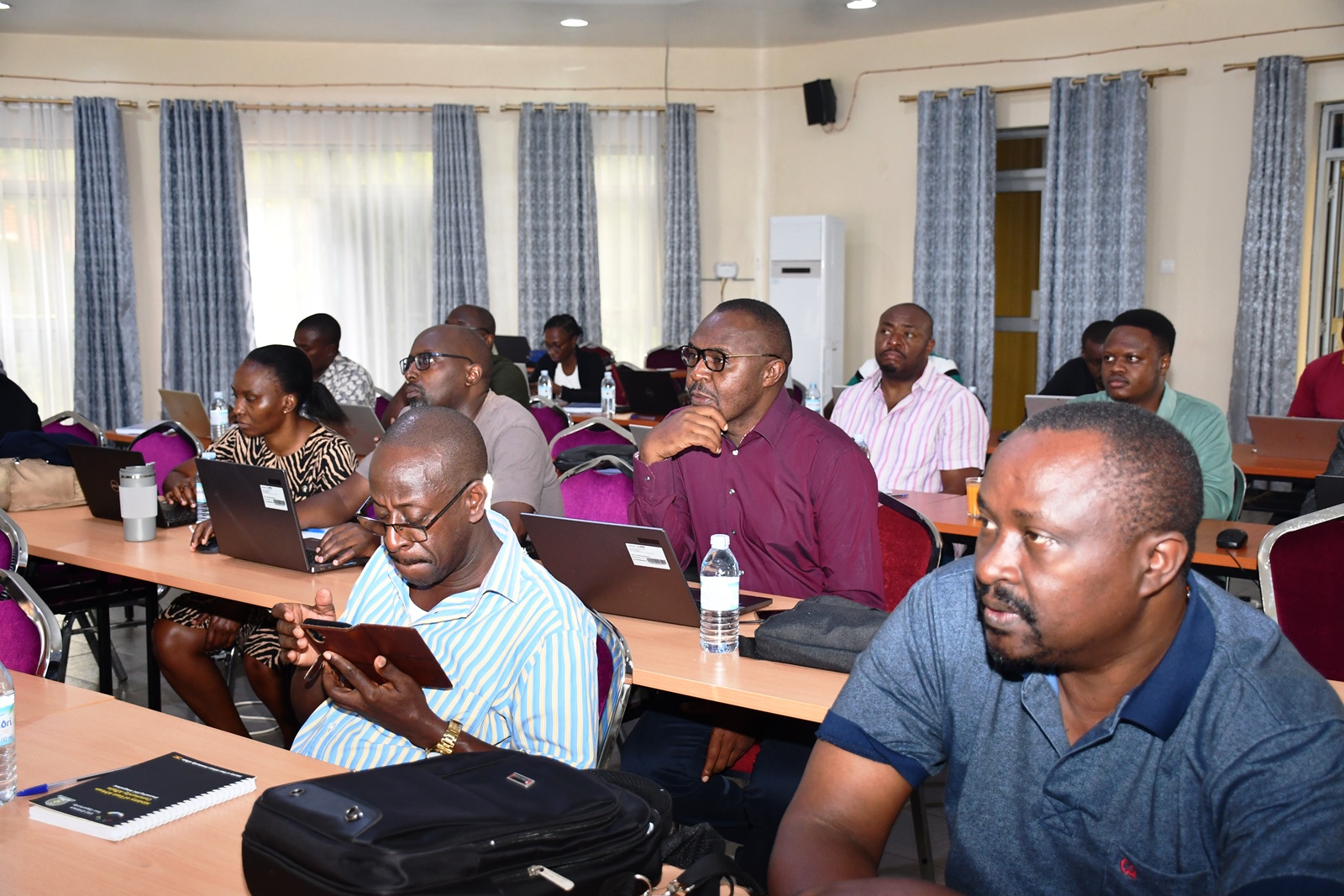
The participant highlighted the final day’s discussions as the most impactful, expressing confidence that the knowledge gained would enhance policy analysis and improve the quality of programmes and projects across MDAs.
Certificates Awarded
The ceremony concluded with the award of certificates to all 30 participants in recognition of their successful completion of the IRCBA training. The certification marks another milestone in Government’s effort to build a critical mass of experts capable of institutionalizing rigorous financial and economic analysis in public policy processes.
As the workshop was formally declared closed, participants were encouraged to apply their newly acquired skills consistently, mentor colleagues, and contribute to strengthening fiscal governance across Government.
The PIM Centre of Excellence reaffirmed its commitment to continuous research, policy advisory support, and capacity building as Uganda advances toward more credible, transparent, and sustainable public decision-making.
Business & Management
Botswana Delegation Visits Makerere’s Public Investment Management Centre to Study Sustainable Training Model
Published
2 days agoon
March 3, 2026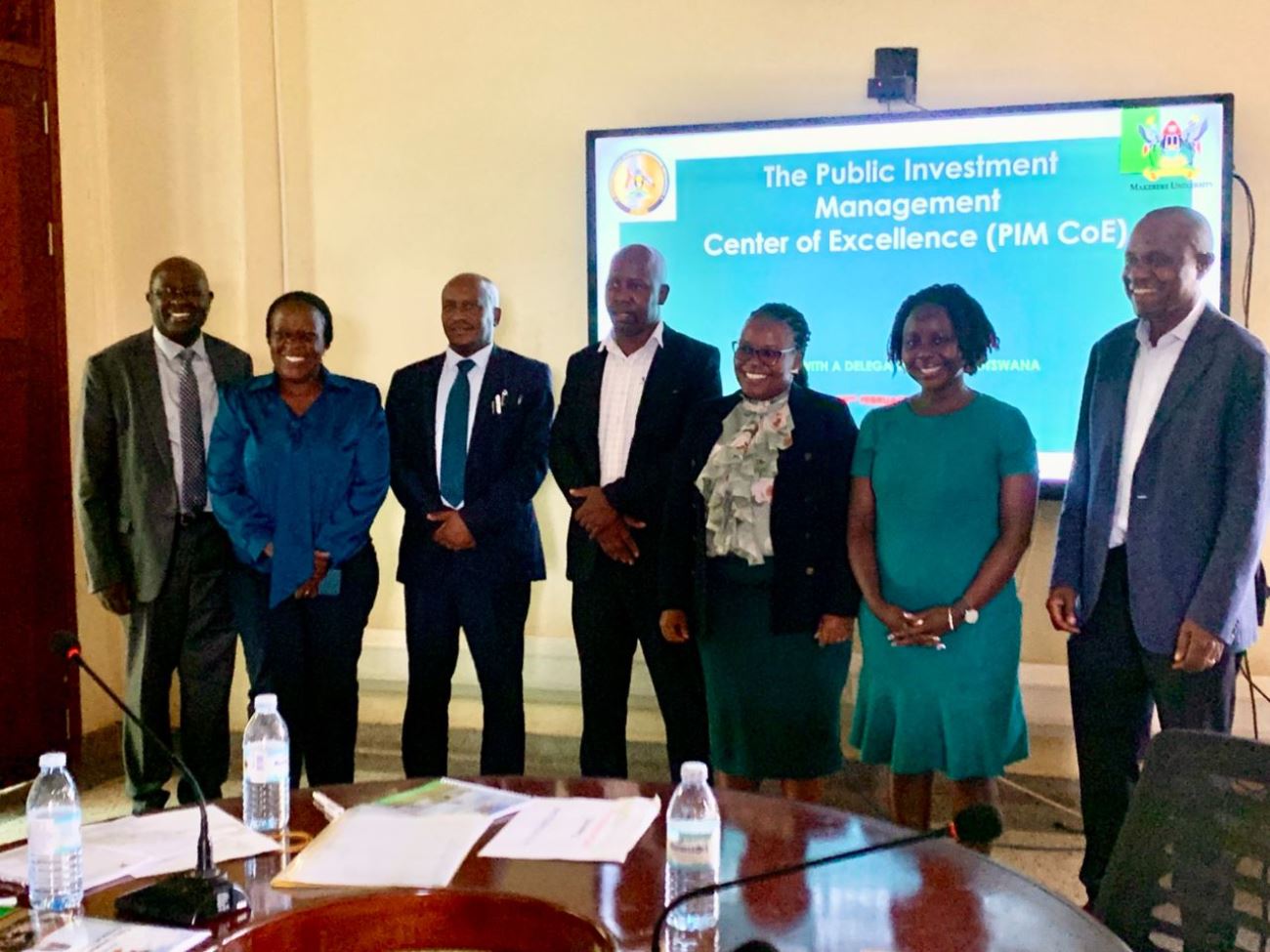
Kampala, Uganda – 25 February 2026
A delegation from Botswana’s public investments sector on 25th February 2026 visited Makerere University’s Public Investment Management Centre of Excellence to benchmark its sustainable training model and draw lessons from Uganda’s well-established Public Investment Management (PIM) framework.
The team, composed of specialists in public investments, is exploring ways to strengthen capacity within Botswana’s public sector institutions. The delegation underscored the importance of structured and sustainable capacity-building programmes, noting that effective public investment management is central to driving national development and ensuring value for money in public projects.
During the engagement, the Botswana team sought to understand the Centre’s operational model, including how it designs and delivers training programmes that remain impactful over time. Particular interest was placed on the Centre’s approach to sustainable training delivery, the documentation of challenges and successes, and mechanisms used to ensure that public officers acquire long-term, practical skills that translate into improved project planning, appraisal, and implementation.
The visiting delegation commended Uganda’s commitment to institutionalizing PIM training and emphasized that cross-country learning is vital for strengthening public financial management systems across Africa. They observed that Uganda’s experience offers practical insights into building a resilient and responsive PIM framework anchored in continuous professional development.
As part of their recommendations, the delegation proposed the introduction of a hybrid training model to enhance accessibility for international participants. Under this approach, the theoretical components of PIM courses would be delivered online, allowing participants to engage remotely from Botswana and other countries. This would then be followed by in-person sessions in Uganda focused on hands-on, experiential learning at the Centre.
According to the delegation, such a model would significantly reduce travel costs and time while preserving the value of face-to-face practical training. The hybrid approach would also provide flexibility for busy public officers, enabling them to balance professional responsibilities with structured learning.
The visit further strengthened regional collaboration and reaffirmed the role of Uganda’s Public Investment Management Centre of Excellence as a hub for capacity development in public investment management across the continent.
Business & Management
76th Graduation Ceremony: CoBAMS Staff and Graduates Win Excellence Awards
Published
7 days agoon
February 26, 2026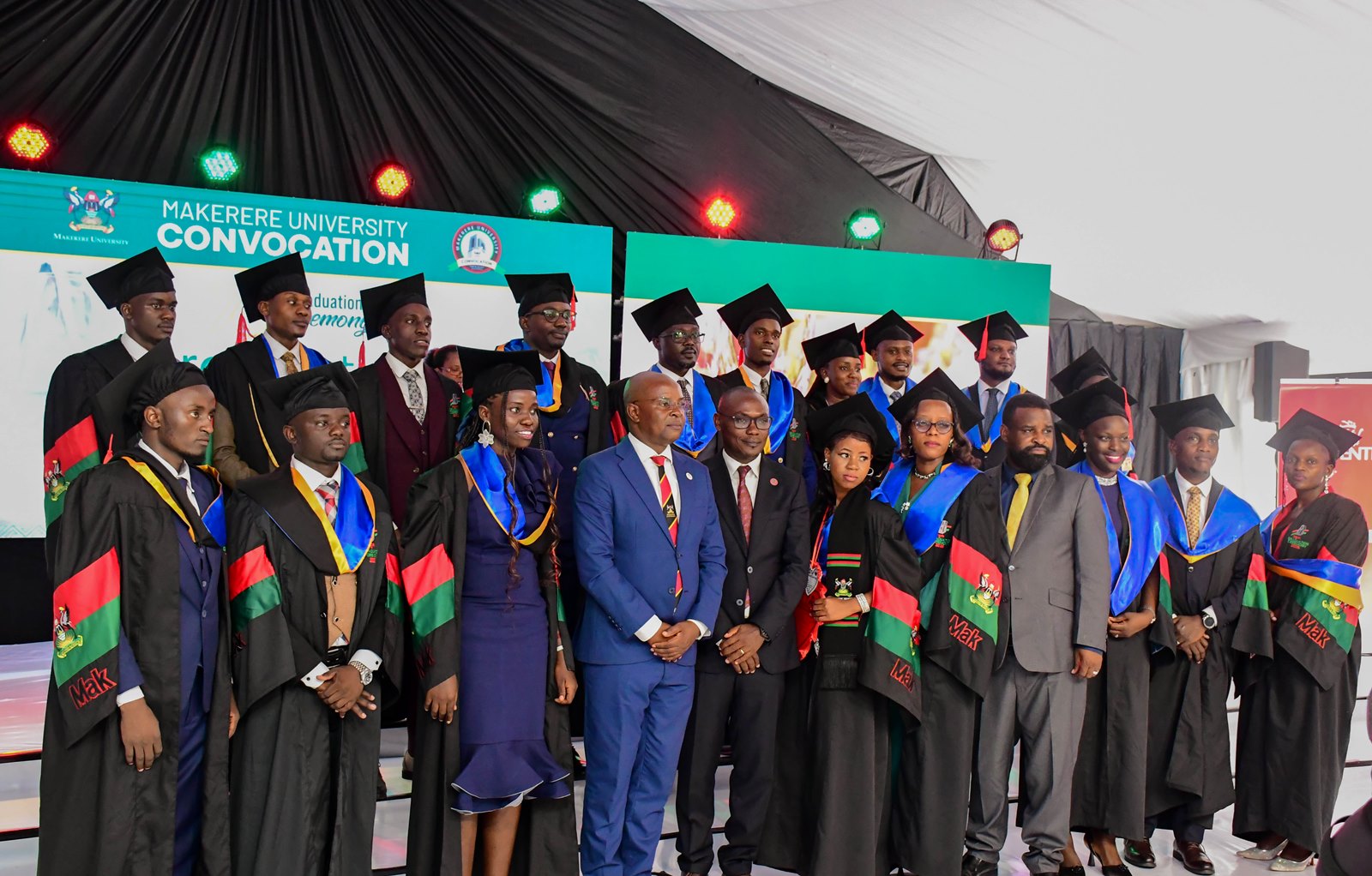
26th February 2026-During the 76th Graduation Ceremony (24th to 27th February 2026), Makerere University invoked its tradition of recognizing outstanding performance and excellence in academics, research, teaching, knowledge transfer, publication and authorship.
The College of Business and Management Sciences (CoBAMS) presented students for graduation on the third day of the 76th graduation ceremony. Consequently, on 26th February 2026, entities within the University namely the Office of the Vice Chancellor, Makerere University Press, the Directorate of Research, Innovations and Partnerships, Directorate of Graduate Training, and partners including the Economic Policy and Research Centre (EPRC), Association of Chartered Certified Accountants (ACCA Uganda), Prudential Uganda, lined up awards, to celebrate achievements and excellence.
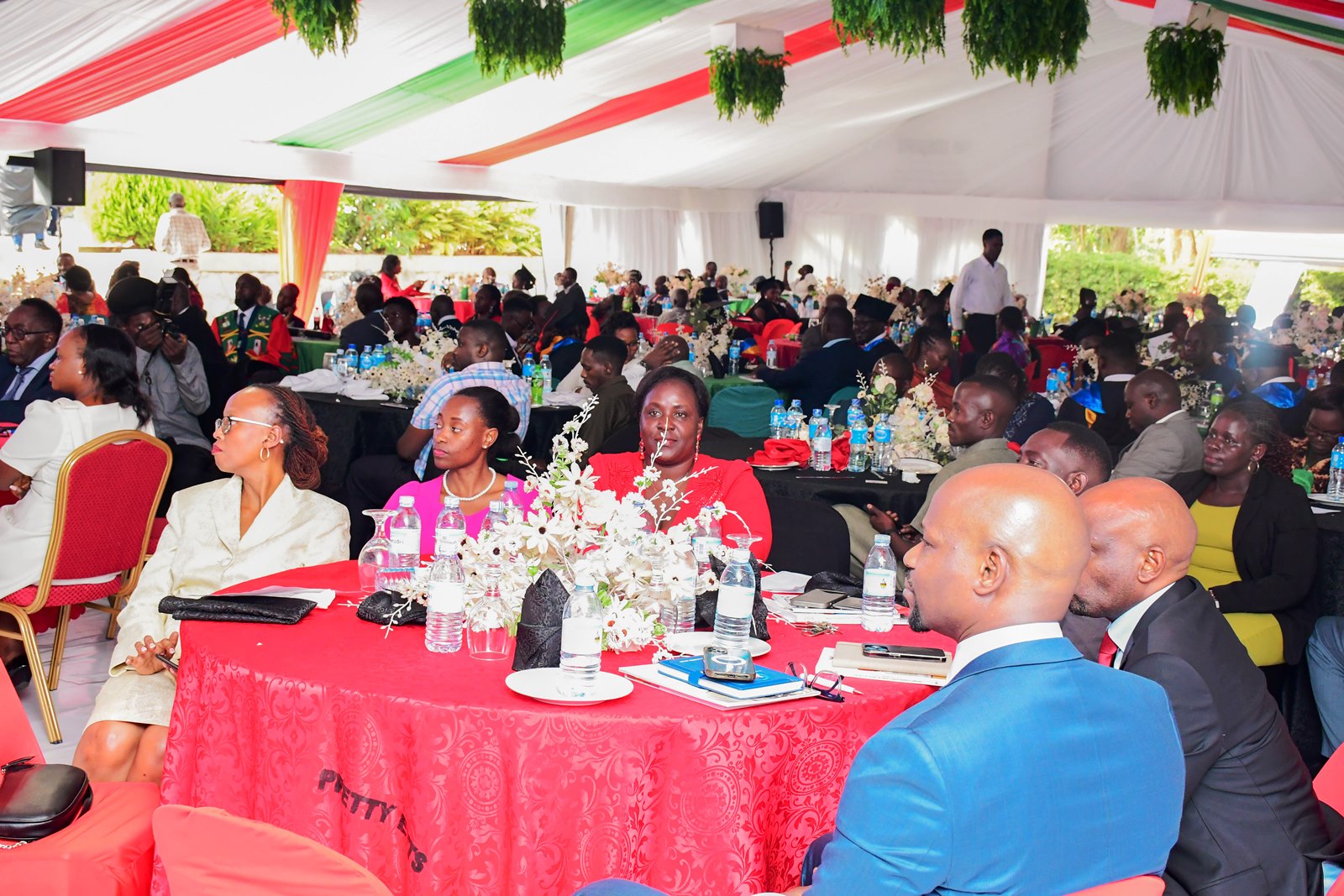
The award ceremony brought onboard invited guests from public and private sectors, the business community, Makerere University officials, faculty members, alumni, industry partners and graduating students. The awards were presented during the Makerere University Convocation Graduation Luncheon.
The ceremony provided a platform for celebrating academic excellence, strengthening alumni engagement, and reinforcing collaboration between the University and its professional and industry partners.
2026 Research Excellence Awards
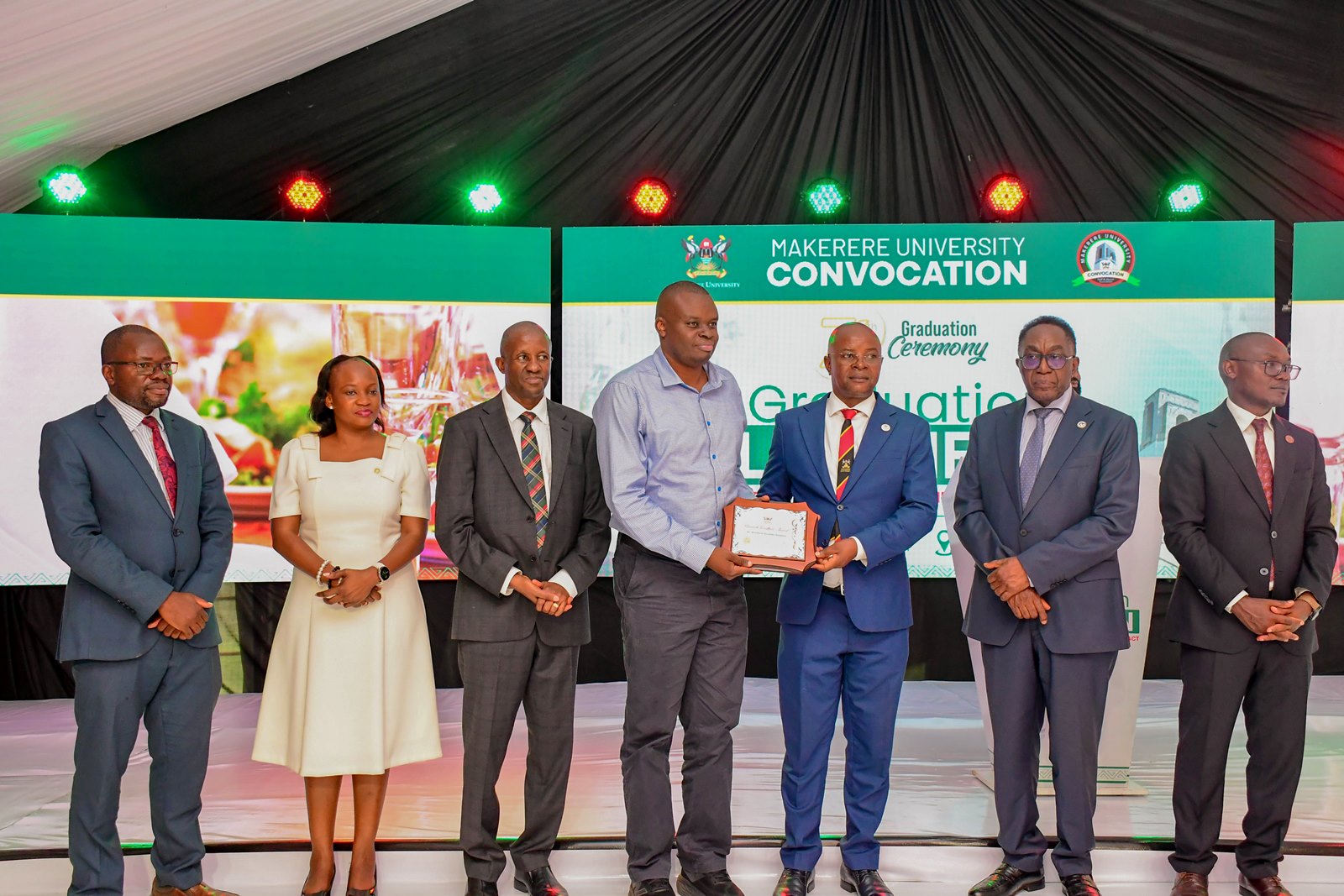
The Vice Chancellor’s Research Excellence Awards were presented to college members whose research output and scholarly contributions have significantly advanced knowledge and strengthened the College’s academic profile.
At CoBAMS, the recipients of the Vice Chancellor’s Research Excellence Awards in the various categories included the following:
- Associate Professor Faisal Buyinza, Overall top research award
- Associate Professor Faisal Buyinza, Senior-Career Research award
- Stephen Ojiambo Wandera, Mid-Career Research award
- Ruth Mpirirwe and Richard Ssempala, Early-Career Research award
The awardees were honored for their exceptional research productivity, impactful publications, and contribution to building a vibrant research culture.
The awards underscore Makerere University’s emphasis on high-quality research that addresses national and global development challenges.
Recognition of Book Author
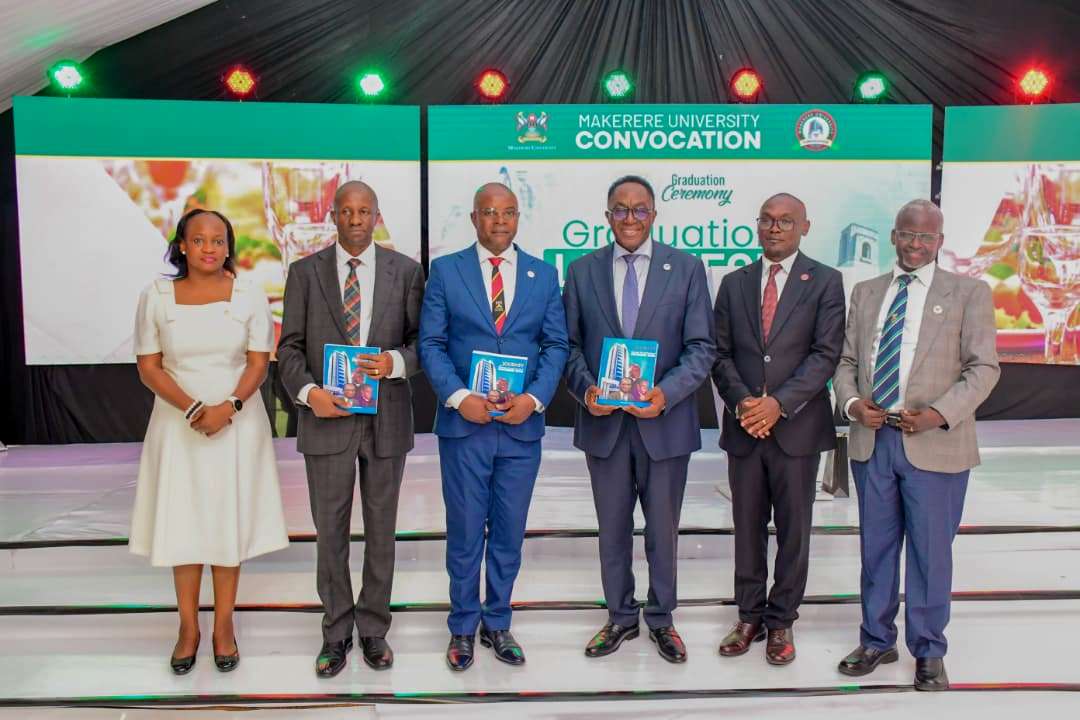
Prof. John Ddumba-Ssentamu, a renowned economist, administrator, former Vice Chancellor of Makerere University, and the pioneer Principal of the College of Business and Management Sciences, was honoured for his contribution to scholarship and knowledge transfer through authorship.
Published by Makerere University Press, Prof. Ddumba-Ssentamu’s book titled, The Journey: Beginnings, Trials and Triumphs of Centenary Bank, highlights the evolution, resilience, and growth of Centenary Bank and reflects his continued contribution to academic literature and thought leadership in the fields of economics and financial development.
Prof. Ddumba-Ssentamu’s recognition reflects the University’s appreciation of distinguished scholars whose published works contribute to intellectual discourse, policy engagement, and the advancement ofscholarship.
Reputable partners recognize excelling graduates
ACCA Uganda- Best Accounting Student
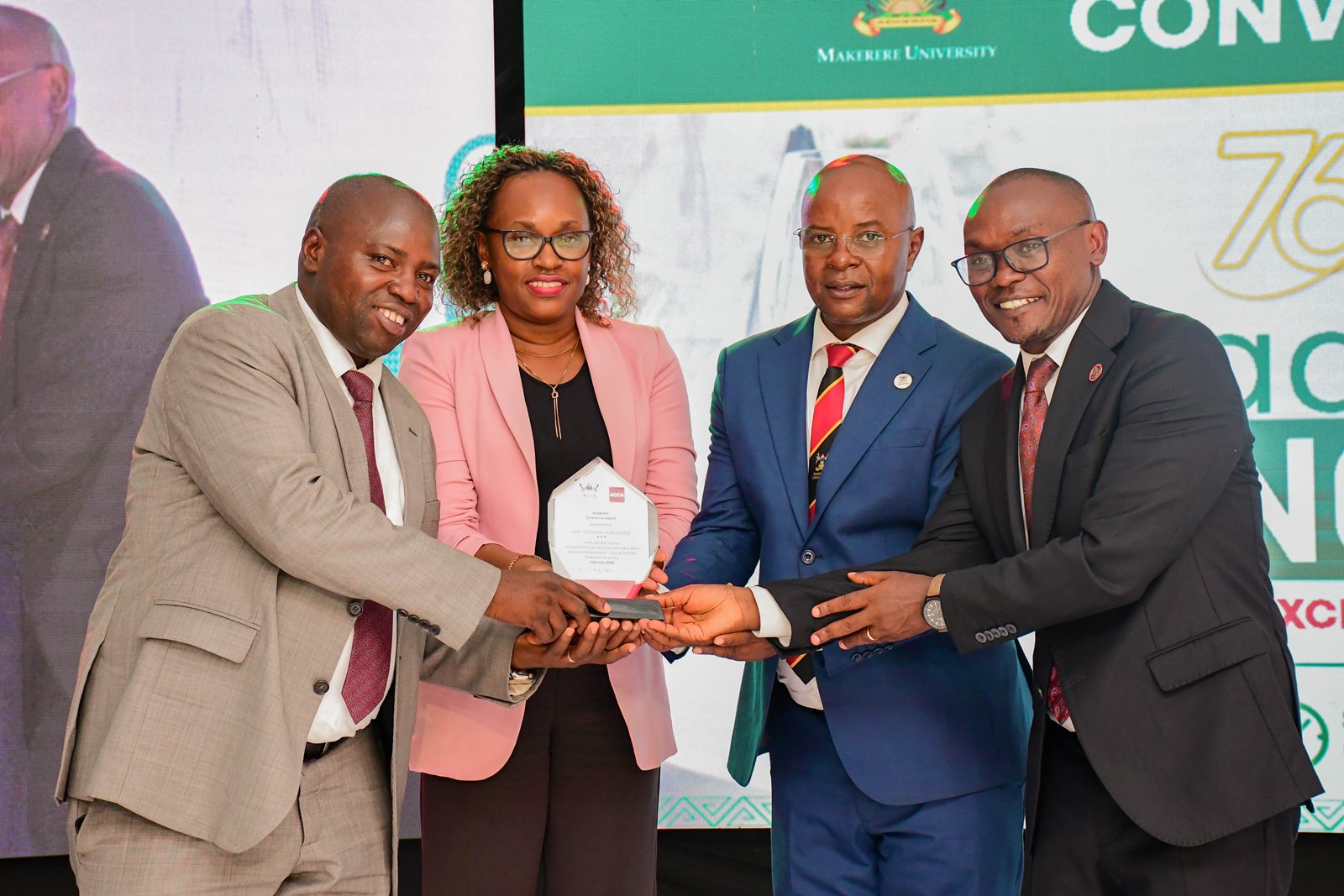
Prudential Uganda-Actuarial Science Award
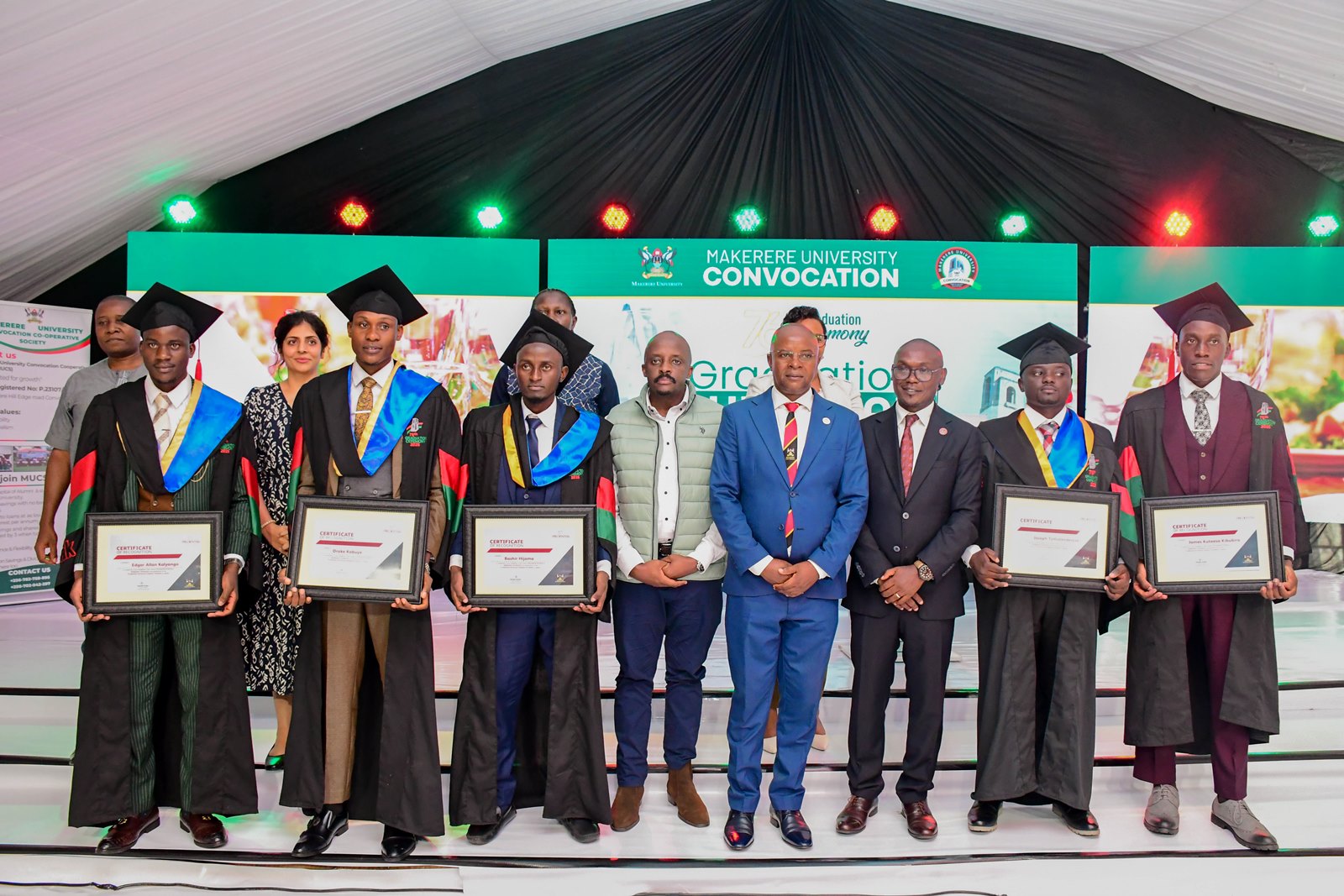
Celebrating academic excellence, Prudential Uganda recognized the fourth cohort of outstanding actuarial science graduates under the Prudential Actuarial Science Support Scheme (PASS). The initiative reflects Prudential’s long-term commitment to building local actuarial expertise and strengthening Uganda’s financial services sector for generations to come.
The top five graduates of Bachelor of Science in Actuarial Science who received the PASS awards included: Drake Kabuye, Edgar Allan Kalyango, Kuteesa Kikubira James, Tumutendereze Joseph, and Bashir Hijoma. These were honored for their outstanding academic performance and commitment to actuarial career. Through PASS, Prudential Uganda provides high-potential graduates with mentorship, internship opportunities, and guidance toward globally recognized actuarial qualifications.
Commenting on the milestone, Tetteh Ayitevie, CEO of Prudential Uganda, said that investing in actuarial talent is critical to building a resilient and sustainable financial services industry. He noted that actuaries play a central role in risk management, pricing, product development, and long-term financial planning, making their contribution vital to the growth of Uganda’s insurance sector.
Prof. Edward Bbaale, the Principal, College of Business and Management Sciences, applauded Prudential Uganda for its ongoing support, highlighting that programmes such as PASS inspire students to excel academically while preparing them for the realities and demands of the actuarial profession.
EPRC Young Professional Award
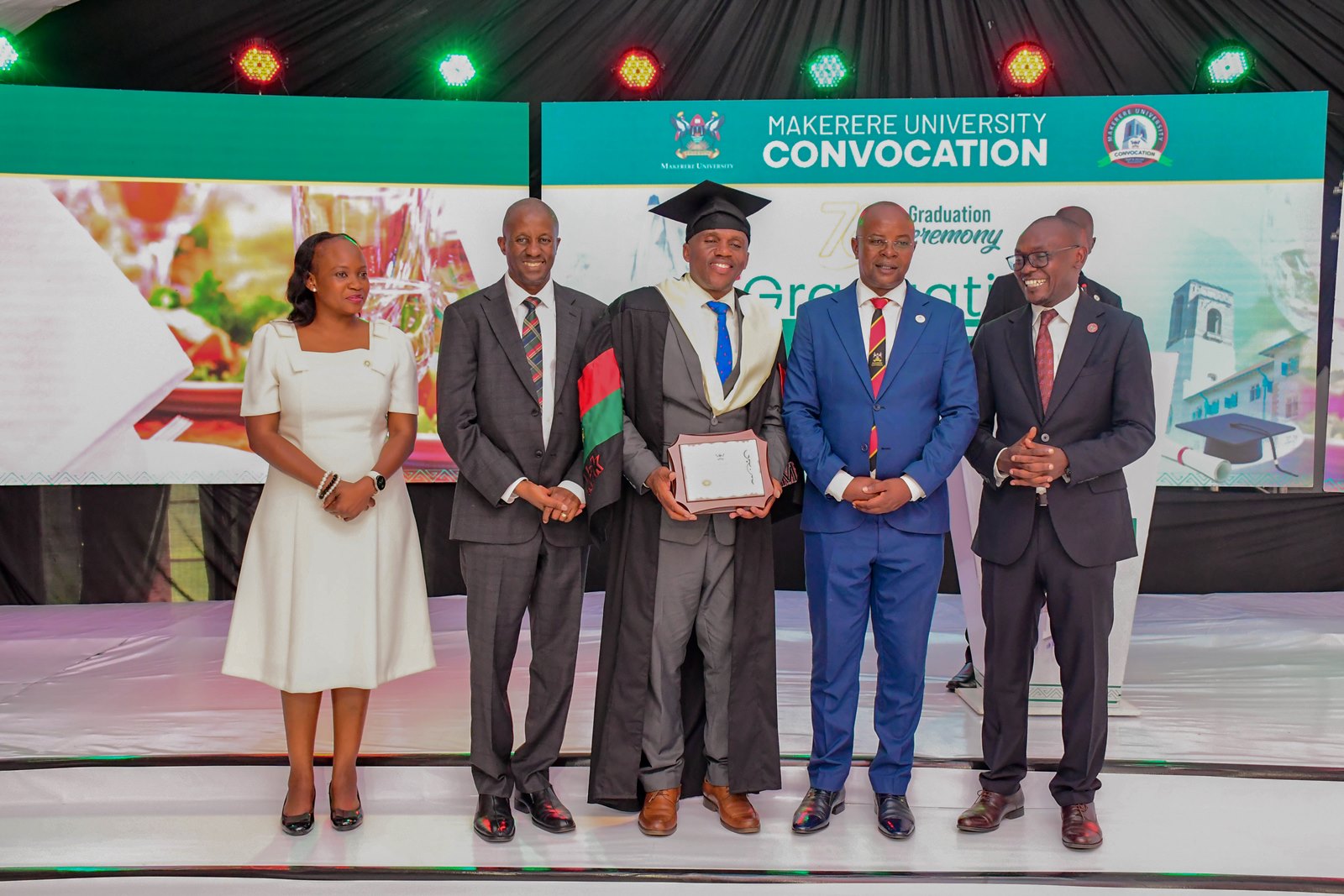
Recognizing excellence, EPRC presented the Young Professional award to Emmanuel Menya, the best Master of Arts in Economics graduate. The award includes a two-year employment contract. Ibrahim Kasirye, the Director of Research at EPRC presented the award on behalf of Dr. Sarah Ssewanyana, the Executive Director.
The EPRC Young Professional Award, recognizes and celebrates exemplary performance. The award underscores the importance of nurturing young professionals who exhibit excellence, innovation, and a strong commitment to national development.
Significance of the Award ceremony
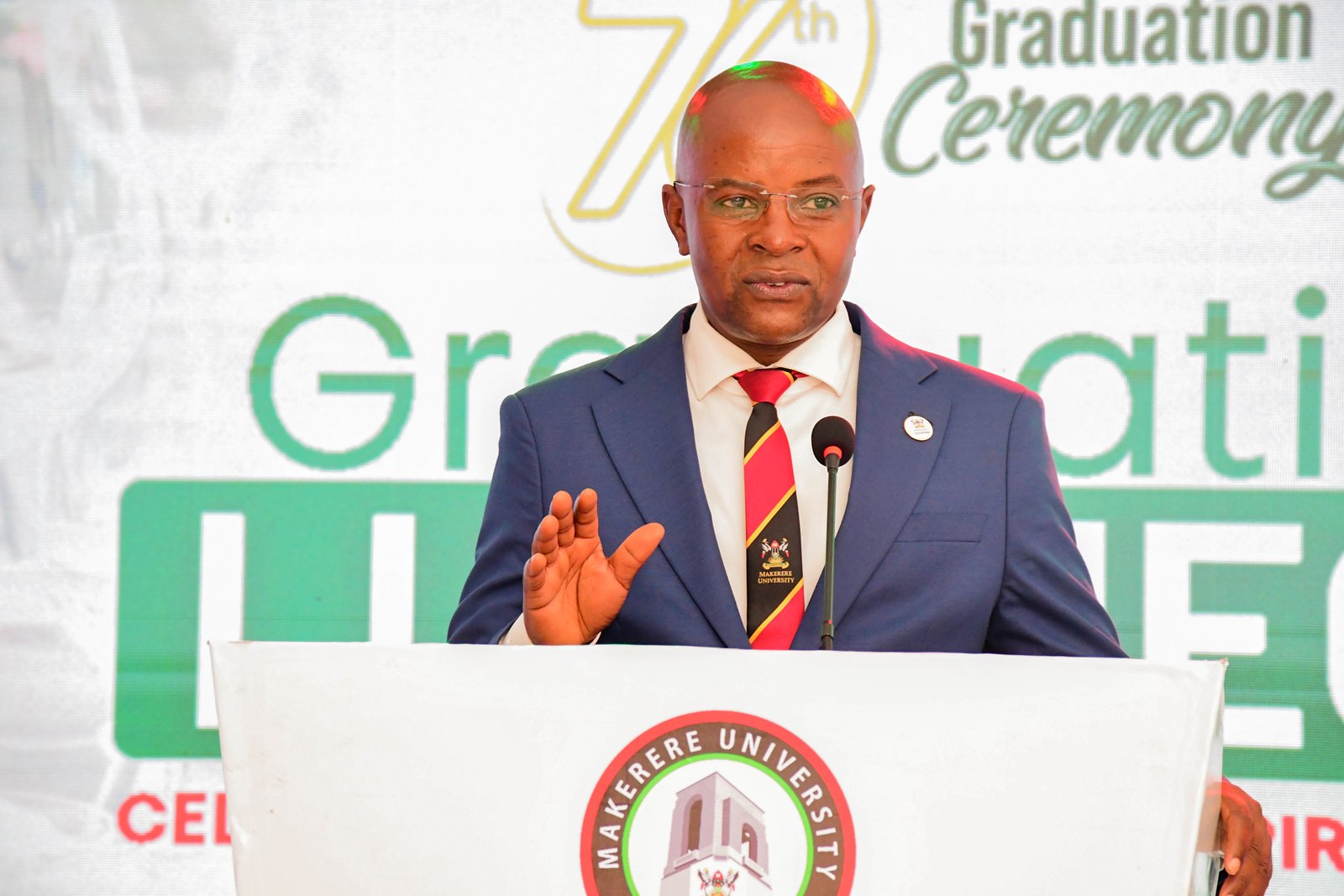
Prof. Edward Bbaale, Principal of College of Business and Management Sciences (CoBAMS), underscored the significance of the ceremony, noting that it served three key purposes: to recognize academic excellence among students, to honor faculty members excelling in teaching, research, and service, and to celebrate Prof. John Ddumba-Ssentamu, former Vice-Chancellor of Makerere University, for his continued contribution to scholarship through authorship.
Prof. Bbaale described Prof. Ddumba-Ssentamu’s ongoing scholarly work as inspirational, stating that it demonstrates a steadfast commitment to knowledge creation beyond leadership roles. He commended both students and staff for their hard work and discipline, emphasizing that university success is a shared achievement.
Collaboration, Responsibility, and Excellence
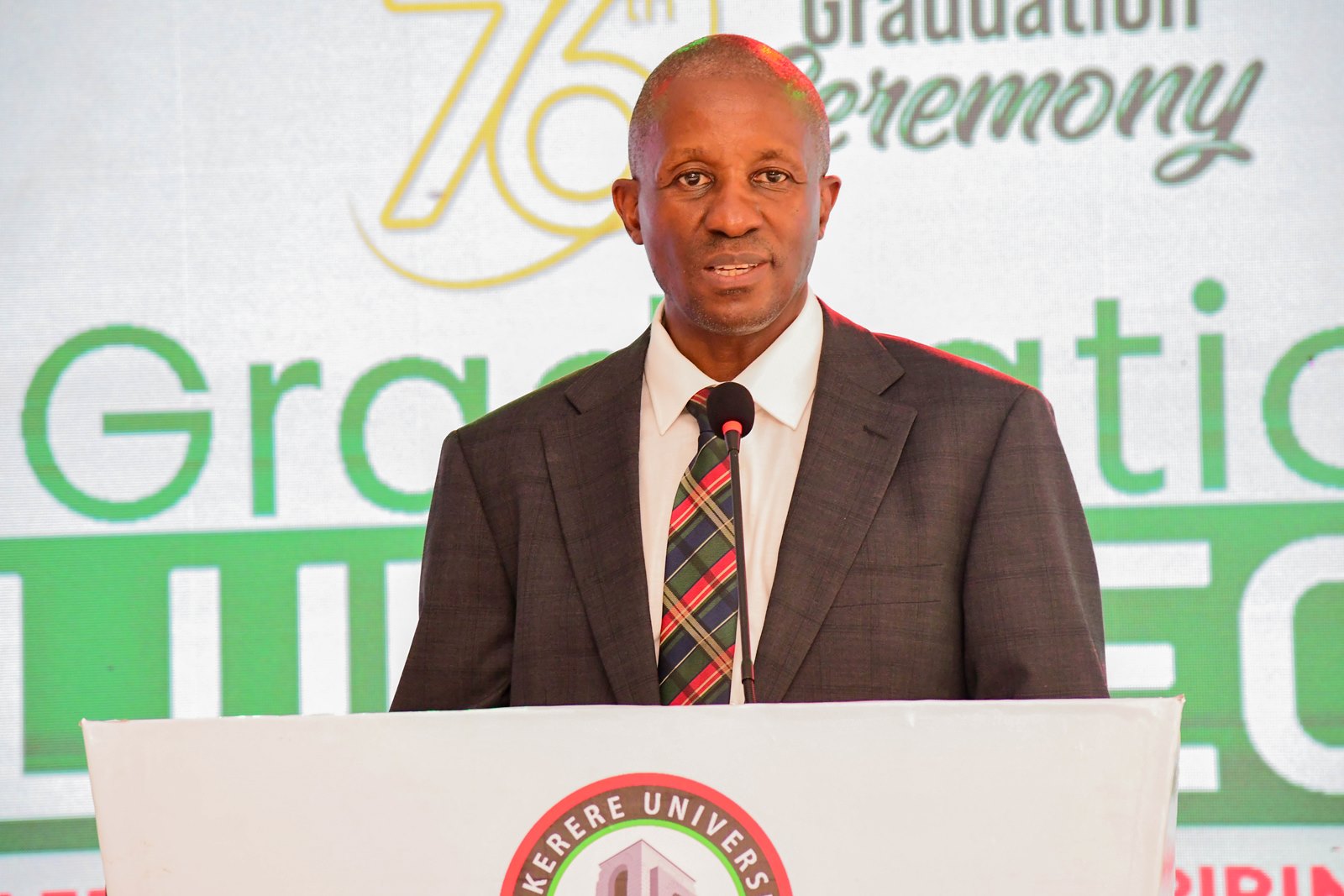
Congratulating the awardees, the Principal of Makerere University Business School (MUBS), Prof. Moses Muhwezi, reminded graduates that being a product of Makerere University is both a privilege and a responsibility.
“Uphold the university’s internationally respected brand, defend it, and take pride in it, while maintaining unity and avoiding internal conflicts that could harm its reputation,” he urged. The Principal of MUBS encouraged graduates to remain committed, diligent, and focused in their pursuit of excellence.
Highlights about Makerere University Convocation
CPA George Mugabi Turyamureeba, Chairperson of the Makerere University Convocation, informed the audience, that the Convocation is a legally established and influential platform for alumni and staff.
Rallying alumni and staff to join Makerere University Convocation, CPA Turyamureeba outlined the achievements and ongoing activities. He reported that during his tenure, the Convocation Executive, had expanded and beautified the permanent home for the Convocation. Some of the ongoing activities include: strengthening alumni engagement, introduction of a cross-generational mentorship program, and the formation of a cooperative society (SACCO) aimed at providing affordable loans and potentially establishing a bank.
He tipped the fresh graduates on resilience, continuous self-improvement, and lifelong learning, stressing the importance of staying connected to their alma mater and the Makerere University Convocation community.
He cautioned the graduates on emerging fraud risks, including digital scams, and fraudulent job offers. He urged them to safeguard their personal information, uphold integrity, and avoid becoming either victims or perpetrators of fraud.
Trending
-

 General5 hours ago
General5 hours agoCall for Applications: Diploma Holders under Government Sponsorship 2026/2027
-

 General5 hours ago
General5 hours agoAdvert: Admissions for Diploma/Degree Holders under Private Sponsorship 2026/27
-

 Humanities & Social Sciences1 week ago
Humanities & Social Sciences1 week agoMeet Najjuka Whitney, The Girl Who Missed Law and Found Her Voice
-

 General1 week ago
General1 week ago76th Graduation Highlights
-

 Agriculture & Environment2 weeks ago
Agriculture & Environment2 weeks agoUganda Martyrs Namugongo Students Turn Organic Waste into Soap in an Innovative School Project on Sustainable Waste Management
